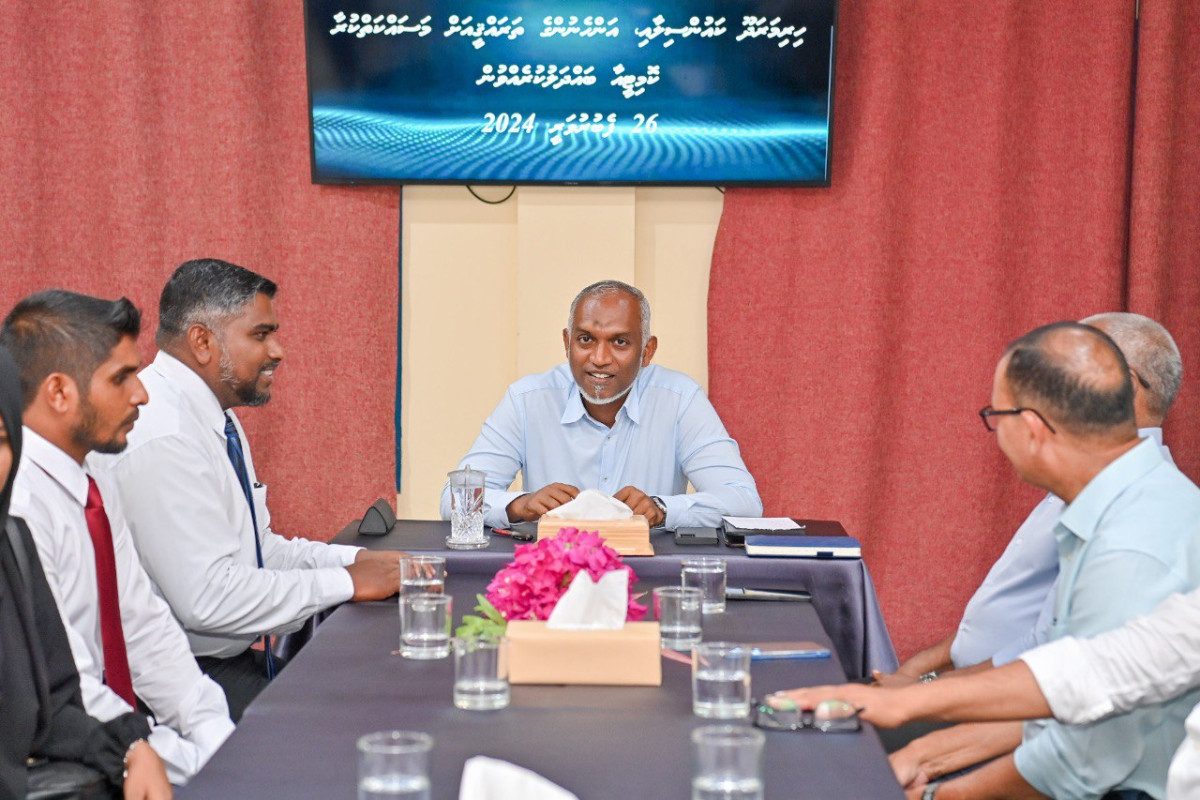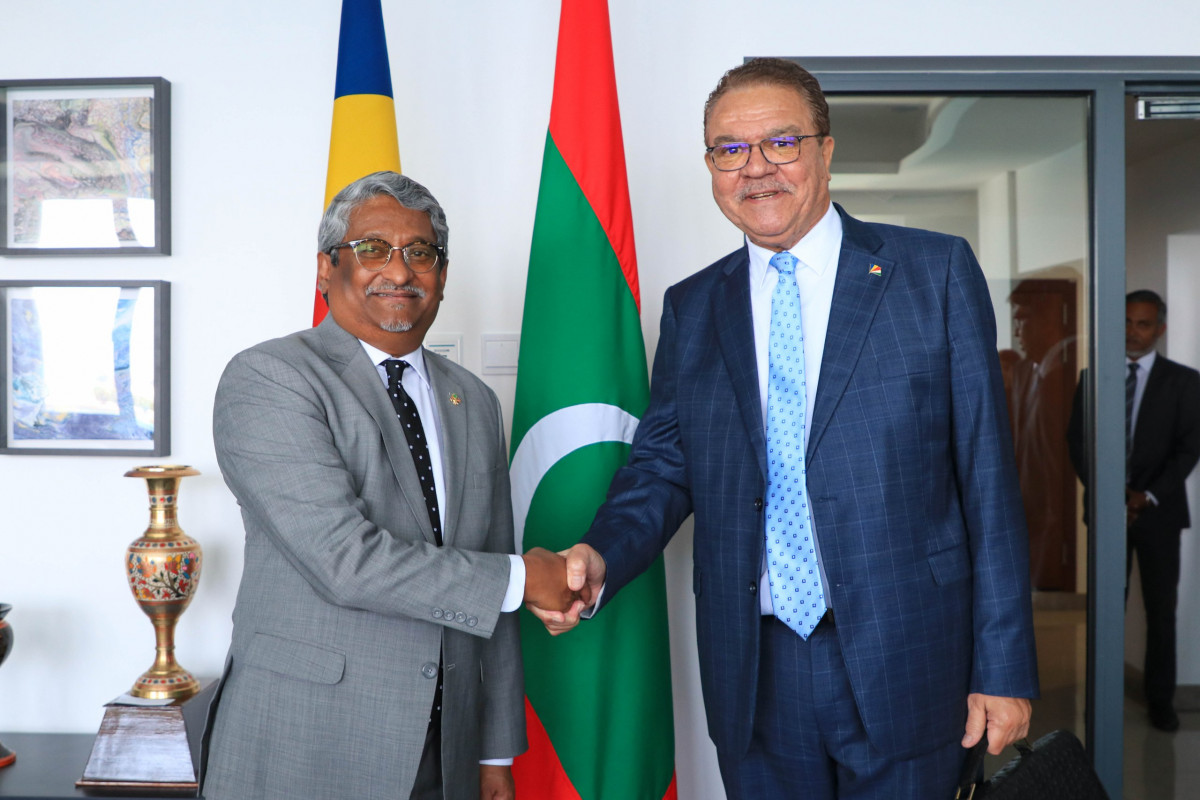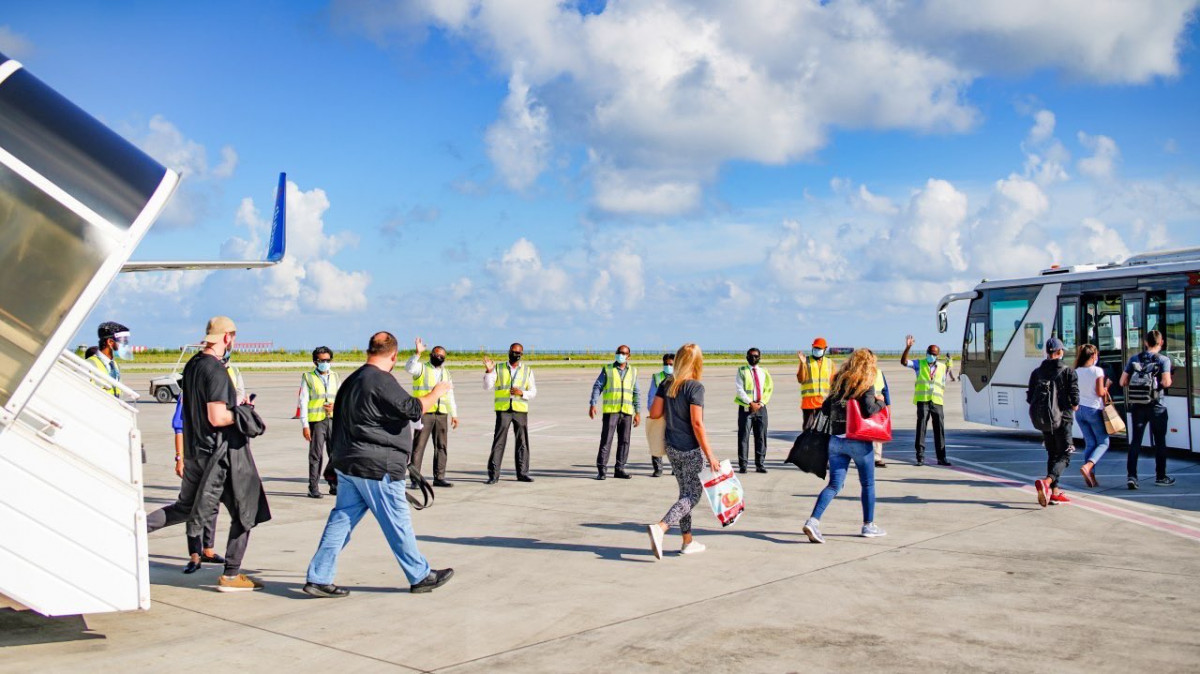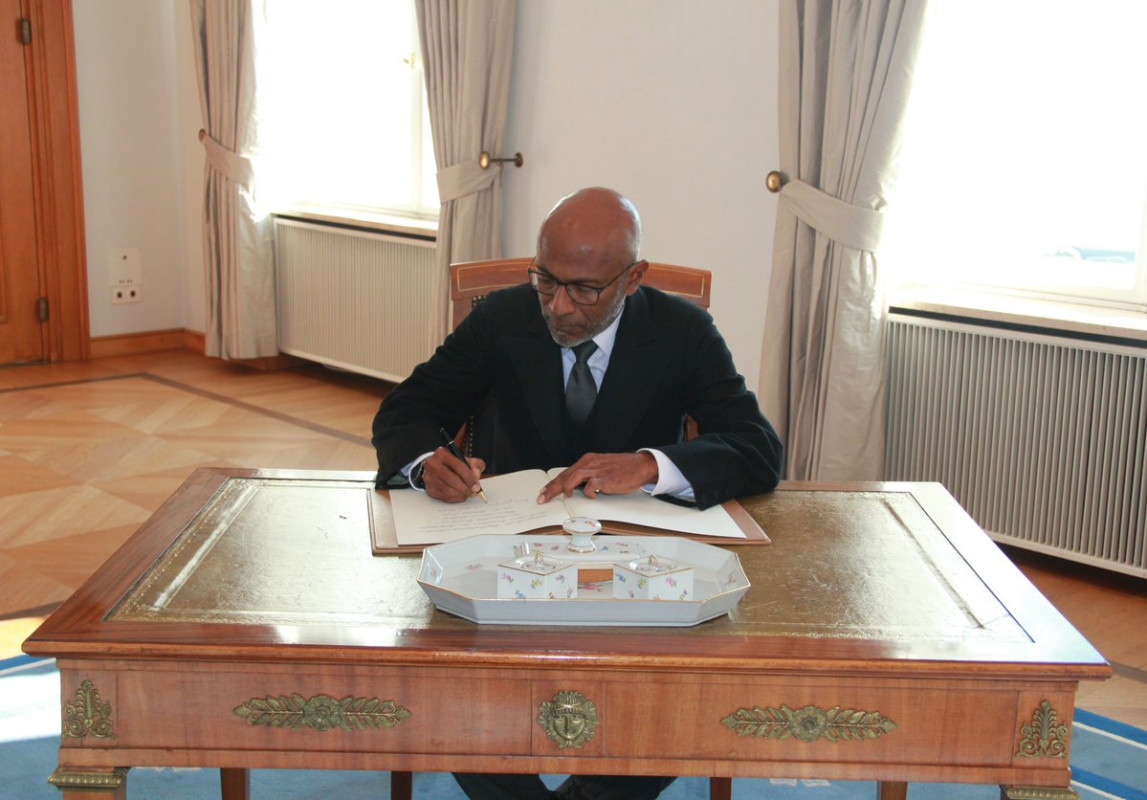AG Usham’s UN assurances on media freedom clash with recent crackdowns
AG Usham assured the UN Human Rights Council that the government is committed to protecting human rights defenders and guarantee freedoms of assembly and expression, though these rights come with an important caveat.

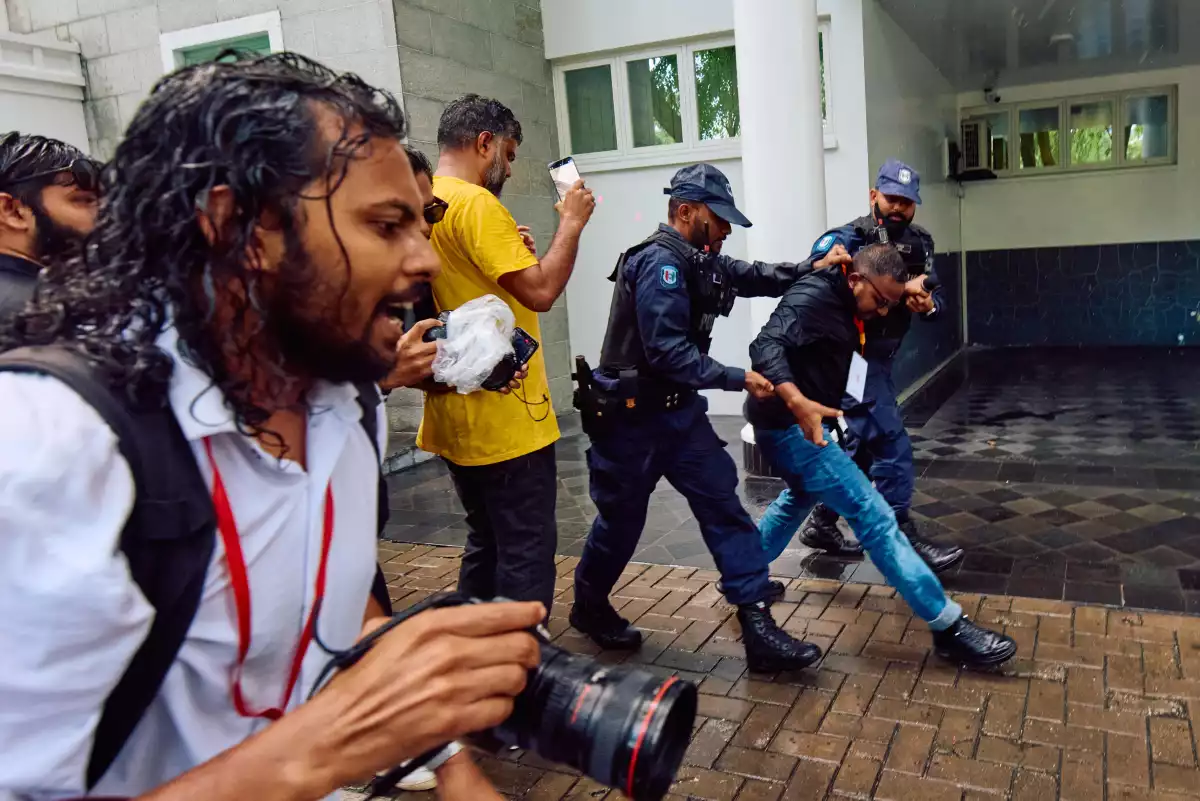
Dhauru journalist Muzayyin Nazim getting arrested and taken into custody as part of protests staged in the capital.
The Maldives government, represented by Attorney General Ahmed Usham, presented its national report during the 50th session of the United Nations Human Rights Council’s Universal Periodic Review on 5 November 2025.
Among the key assurances were commitments that human rights defenders face no reprisals for working with international mechanisms, and that safeguards are in place for free peaceful assembly and freedom of expression.
In his speech, AG Usham highlighted that the Constitution guarantees the right to freedom of thought and expression, “in a manner that is not contrary to any tenet of Islam.”
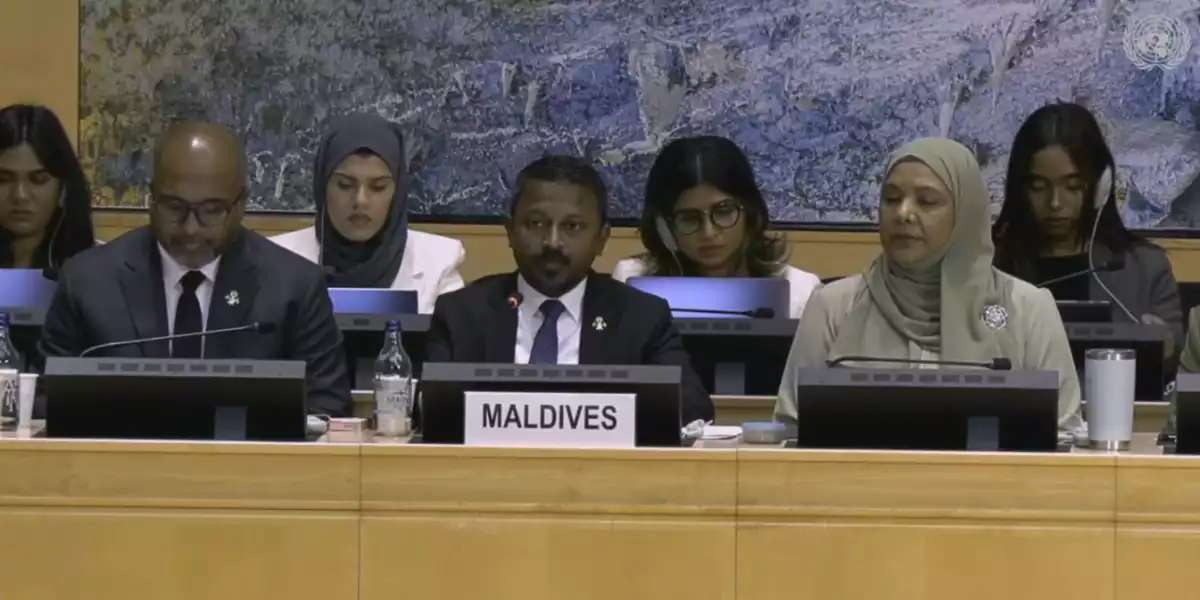
He highlighted recent legislative reforms. These include a withdrawal of arbitrary deregistration claims against the Maldives Democratic Network, which was deregistered in December 2019 and later upheld by the Civil Court in March 2023 as lawful, and an amendment to the Penal Code criminalizing incitement to hate based on race, place of birth, color, political views and religion.
He also shed light on the newly enacted Maldives Media and Broadcasting Regulation Act bac in September, as evidence of the administration’s intention to safeguard journalistic freedom, creating an independent Media and Broadcasting Commission and exempting personal social-media accounts and private storage from its scope.
As enacted, the act regulates broadcast and cable television, radio, online platforms, and print or digital publications that serve the public and does not extend to personal social media accounts or private storage devices, establishes a consolidated independent Media and Broadcasting Commission with appointment, with the appointment procedures free from any role of the executive. Necessary safeguards have been incorporated into the act to ensure its compliance with our international human rights obligations.”Ahmed Usham, Attorney General.
Despite assurances, a growing body of reporting from local media and press-freedom organizations suggests that independent journalism in the Maldives is under increasing pressure.
In March 2025, the now-abolished Maldives Broadcasting Commission (Broadcom) initiated an investigation into the privately-run Television station RaajjeTV for allegedly violating the Broadcasting Code of Practice after it aired a political protest in which remarks were made about the president’s son. RaajjeTV was instructed to respond by a deadline.
In May 2025, despite public assurances of increased press freedom, the Maldives remained ranked among the world’s “toughest countries for journalism”, with the Reporters Without Borders (RSF) index placing it 104th in 2025 (from 106th in 2024).
In August 2025, the International Federation of Journalists (IFJ) raised alarm over the bill that sought to abolish existing media regulatory bodies and replace them with a “Maldives Media and Broadcasting Commission” with broad powers, including the ability to fine journalists, suspend media registrations and block websites.
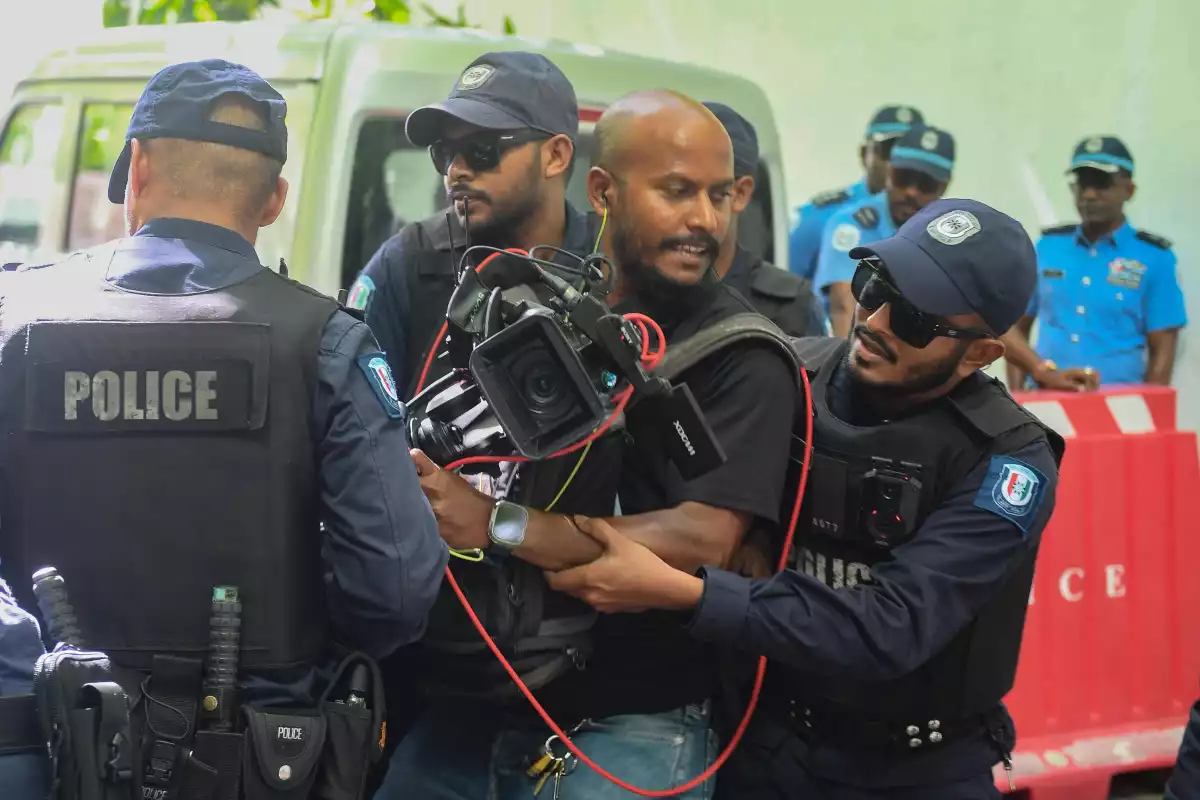
On 10 September 2025, the Parliament’s Independent Institutions Committee held a closed-door meeting on the draconian media-control bill, denying journalists access, and prompting protests from 151 media workers across 41 outlets. Signatories called on both the People’s Majlis and the President’s Office to reject the legislation. In a chilling blow to press freedom, the People's Majlis passed the legislation on 16 September 2025.
Two days later, on 18 September 2025, a dark chapter unfolded for Maldivian democracy, with the ratification of the draconian bill.
Contradictions and questions
While the government emphasized that the new Media and Broadcasting Regulation Act was drafted following stakeholder consultations, including media-representatives, critics argue that the actual parliamentary process for the subsequent bill has excluded journalists and proceeded behind closed doors. The closed-door meetings and exclusion of media from deliberations contrast with the administration’s stated commitment to “fostering an environment conducive to independent journalism and accountability.”
In his UPR statement, AG Usham stressed that mandatory source-disclosure for media has been prohibited and that the government has facilitated open press access (noting that the president held a landmark 15-hour press conference in 2025).
At the same time, actions such as the Broadcom investigation of RaajjeTV and proposed regulatory powers including fines, suspension of outlets and blocking of websites, have raised serious concerns among international watchdogs. The IFJ and the Committee to Protect Journalists (CPJ) both called for immediate withdrawal of the bill, along with several other global institutions.
Outlook
The Maldives now faces the test of turning assurances into practice.
Key factors to watch include whether:
- Journalists and media organizations are meaningfully included in any regulatory-reform process.
- Investigations into alleged violations of broadcasting codes avoid being used as tools for political pressure.
- Reporters feel safe from intimidation, reprisals or legal harassment in practice, in line with the government’s claim of zero reprisals for human-rights defenders (which it also extended to media actors).
Given the discrepancy between high-level commitments at the UPR and the on-the-ground indicators of strain in media freedom, observers will likely monitor the Maldives closely over the coming months.
The island nation’s standing in press‐freedom directories, the transparency of parliamentary procedure, and the treatment of media outlets like RaajjeTV will serve as indicators for whether the government’s stated support for independent journalism is realized.

